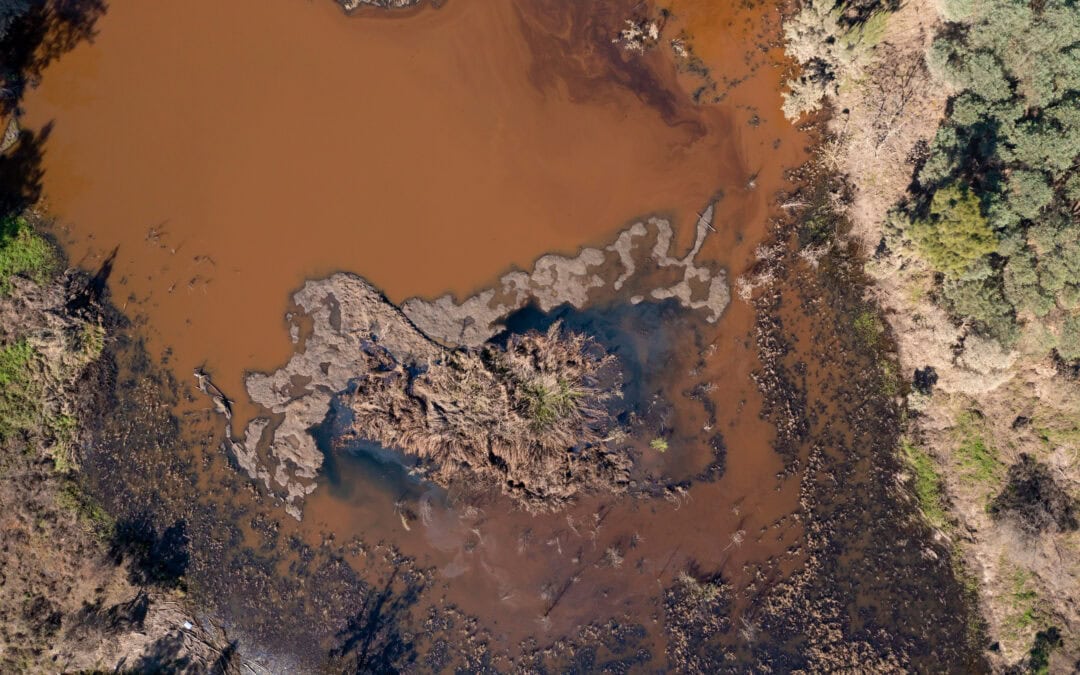Over many years, land pollution has quietly spread across our state, threatening farms, neighborhoods, and wildlife reserves. But what is land pollution? Simply put, it occurs when harmful substances, including chemicals, plastics, and industrial waste, contaminate soil and degrade the land we rely on.
When historic oil and gas operations pollute our lands and water sources, landowners can turn to Legacy litigation to seek justice. A knowledgeable attorney can work to trace contamination back to its source, hold responsible parties accountable, and win compensation for cleanup costs.
In this blog, we’ll explore how land pollution harms our environment and why expert legal help matters when you need to fight for a cleaner, safer future.
Causes of Land Pollution
Land pollution comes from many actions we take on the land. Farms spread fertilizers and pesticides that seep into the soil. Cities fill fields, pave over green spaces, and bury trash in landfills where toxic liquids can leak out. Listed below are some of the common causes of land pollution that put our soil, water, and health at risk.
Historic Oil & Gas Operations
Decades ago, oil and gas companies dug pits for drilling fluids and dumped oily sludge without lined barriers. Abandoned wells now leak crude oil and salty brine into surrounding land. Old pipelines corrode underground and spill toxic hydrocarbons into the ground.
Over time, these pollutants soak deep into the soil, killing plants and harming animals. Today, landowners may find pockets of contaminated earth on property once used for drilling.
Industrial Waste & Improper Waste Disposal
Factories and processing plants produce large amounts of waste every day. When companies do not dispose of this waste properly, chemicals and by-products can seep into the ground. Old barrels can leak, and unlined ponds can let pollutants escape. Even small spills of oil, solvents, or heavy metals add up over time. Without strict controls and safe disposal methods, industrial waste becomes one of the biggest drivers of land pollution.
Impact of Land Pollution on the Environment
Land pollution affects every part of our natural world. When chemicals, plastics, and waste are dumped on the ground, the soil, water, plants, and animals all suffer.
Soil Degradation
Toxic chemicals and heavy metals in the soil kill beneficial microbes and worms. They disrupt nutrient cycles and make the ground hard and compacted. Crops grown in polluted soil struggle to absorb water and nutrients, so yields drop. Over years of contamination, once-fertile land turns barren and unusable for farming or gardening.
Contamination of Water Sources
Rain washes pollutants from the land into streams, rivers, and lakes. Some chemicals seep down into groundwater, tainting wells and aquifers. People and animals who drink or bathe in this water can suffer from stomach issues, skin rashes, and worse. Polluted waterways also choke fish and aquatic plants, throwing entire ecosystems out of balance.
Threats to Wildlife & Biodiversity
Animals eat or absorb toxins found in soil and plants. Predators then face higher doses when they eat contaminated prey. This bioaccumulation weakens immune systems, stunts growth, and reduces reproduction rates. Habitats shrink as plant life dies off, forcing wildlife to move or perish. Over time, land pollution can lead to local extinctions and a big drop in biodiversity.
Human Health Risks & Food Safety
When crops absorb heavy metals or chemicals from polluted soil, those toxins make their way into our plates. Eating contaminated fruits, vegetables, or meat can cause headaches, nausea, and long-term organ damage. Children who play in tainted soil risk skin infections and developmental issues. By threatening food safety and everyday health, land pollution creates hidden dangers for entire communities.
What Is Legacy Litigation?
Legacy litigation allows landowners to sue for contamination that happened years or even decades ago. This legal process targets “legacy” sites, which are places where oil and gas companies left behind toxic waste or let harmful chemicals leak. Even when original polluters moved on, affected residents can still demand cleanup and hold those responsible to account.
The Role of a Legacy Litigation Attorney
In building a case, a Legacy litigation attorney may dig into decades-old records, from corporate archives to government files. They can also hire experts to sample soil and groundwater at the site. From there, they create a clear timeline of how, when, and where contaminants spread. This thorough investigation forms the backbone of every Legacy litigation claim.
A Legacy litigation attorney fights for more than just soil cleanup, often seeking additional compensation for economic loss and ongoing monitoring.
Consulting with a Legacy Litigation Attorney
Land pollution leaves a long trail of damage, impacting soil health, poisoning water, and driving away wildlife. It also puts people at risk of serious illnesses and hurts local economies. By understanding these effects, we see just how urgent it is to stop pollution and clean up contaminated land.
Consulting a Legacy litigation attorney gives you the best chance to right past wrongs and hold polluters accountable. Their expertise can help landowners secure compensation for cleanup, as well as health impacts and property losses.
If you suspect your land or water has been harmed, don’t wait. Reach out to Talbot, Carmouche & Marcello today for a free consultation and learn about your rights and options.

